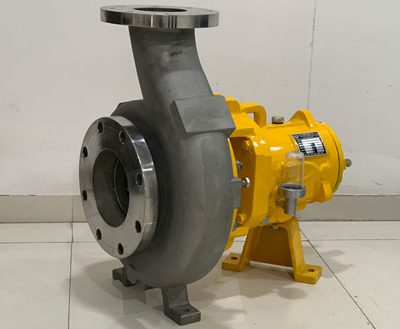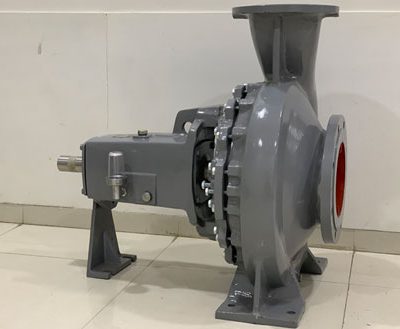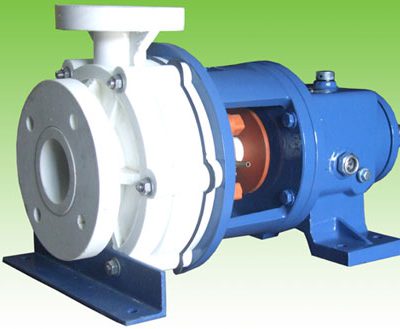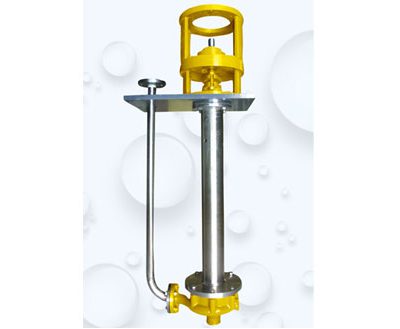A chemical process pump is a type of pump specifically designed and engineered to handle aggressive or corrosive fluids typically encountered in chemical processing applications. These pumps are crucial in industries such as chemical manufacturing, petrochemicals, pharmaceuticals, and wastewater treatment, where the fluids being transported may contain corrosive chemicals, abrasive particles, or high temperatures.
Key features and considerations of chemical process pumps include:
- Corrosion Resistance: Chemical process pumps are constructed from materials that resist corrosion from the fluids being pumped. Common materials include stainless steel and high-grade alloys.
- Seal Options: Proper sealing is essential to prevent leakage of hazardous or toxic fluids. Chemical process pumps often offer a variety of sealing options, including single or double mechanical seals, gland packing, or metal bellow seals depending on the specific requirements of the application.
- Chemical Compatibility: Pump components must be compatible with the fluids being handled to avoid degradation or contamination. Pump manufacturers provide compatibility charts and guidelines to ensure the proper selection of materials.
- High Temperature Resistance: Some chemical processes involve fluids at elevated temperatures. Chemical process pumps are designed to withstand these temperatures without compromising performance or safety.
- Abrasion Resistance: In applications where fluids contain abrasive particles, pumps may incorporate features such as hardened materials, wear-resistant coatings, or specialized impeller designs to minimize wear and prolong pump life.
- Reliability and Maintenance: Chemical process pumps are often subjected to demanding operating conditions. Reliability, ease of maintenance, and accessibility of components are important considerations in pump design to minimize downtime and ensure continuous operation.
- Compliance and Safety Standards: Pumps used in chemical processing must meet industry standards and regulations for safety, environmental protection, and performance. Manufacturers typically provide pumps that comply with standards such as API (American Petroleum Institute), ANSI (American National Standards Institute), ISO (International Organization for Standardization), and specific chemical industry guidelines.
Overall, chemical process pumps play a critical role in ensuring the safe and efficient handling of corrosive or hazardous fluids in various industrial applications. They are designed with robust construction, corrosion resistance, and appropriate sealing mechanisms to meet the challenges of chemical processing environments.




